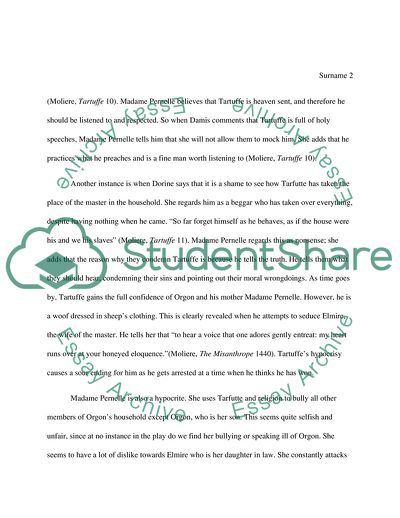Cite this document
(The Play Tartuffe Is Molieres Way of Exposing Hypocrisy, Religion, Essay - 1, n.d.)
The Play Tartuffe Is Molieres Way of Exposing Hypocrisy, Religion, Essay - 1. https://studentshare.org/literature/1782289-world-literature
The Play Tartuffe Is Molieres Way of Exposing Hypocrisy, Religion, Essay - 1. https://studentshare.org/literature/1782289-world-literature
(The Play Tartuffe Is Molieres Way of Exposing Hypocrisy, Religion, Essay - 1)
The Play Tartuffe Is Molieres Way of Exposing Hypocrisy, Religion, Essay - 1. https://studentshare.org/literature/1782289-world-literature.
The Play Tartuffe Is Molieres Way of Exposing Hypocrisy, Religion, Essay - 1. https://studentshare.org/literature/1782289-world-literature.
“The Play Tartuffe Is Molieres Way of Exposing Hypocrisy, Religion, Essay - 1”. https://studentshare.org/literature/1782289-world-literature.


